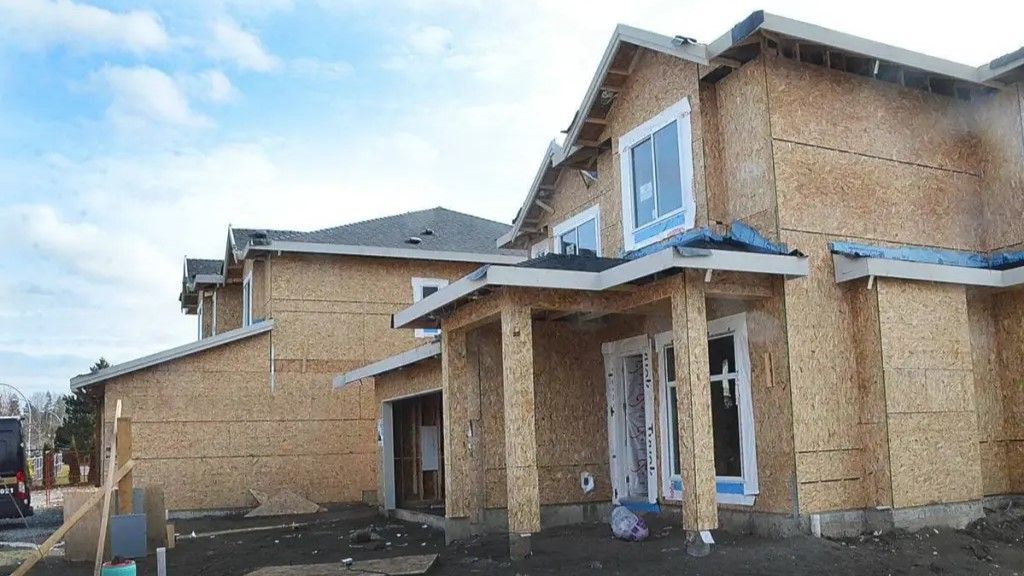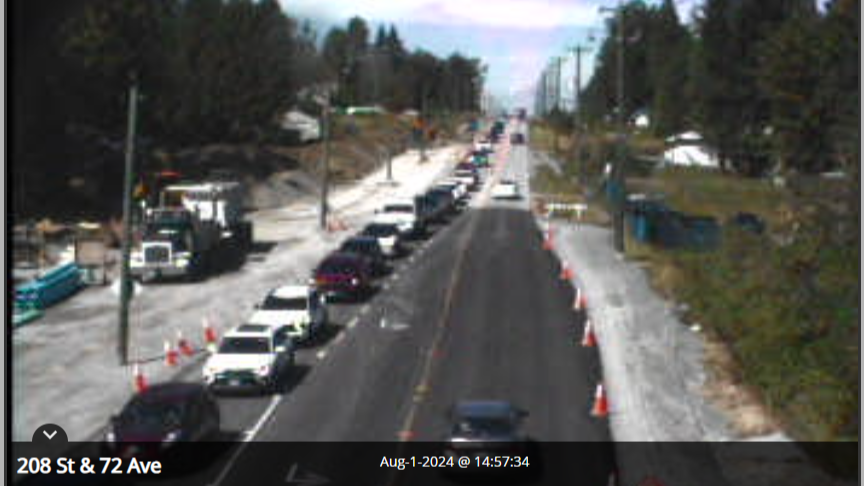Cooling-off period not the solution to B.C. housing crisis, real estate association says
Courtney Dickson - CBC News • March 9, 2022

Association counters government with 'pre-offer period' as way of giving buyers time to do their due diligence
B.C.'s housing market is so hot that buyers are being forced to make offers on homes so quickly that they don't get a chance to review documents, get appraisals or schedule inspections.
Natalie Holgerson received an unsolicited offer on her townhome in Steveston last summer and decided to take a chance and accept it, planning to quickly find a new home. Now, she's living in a rental unit.
She said she goes to open houses on weekends but has to have offers prepared by Monday, offering little time to do her due diligence.
"You cannot have any subjects because you know your offer won't even be considered if you do have subjects," she said.
Holgerson said there are few properties available, and even though she's made several offers, she hasn't been able to purchase a home.
"Unless you're willing to take on a million-dollar-plus mortgage, which we are not at this stage in our lives, it's a super challenging situation," she said.
Natalie Holgerson received an unsolicited offer on her townhome in Steveston last summer and decided to take a chance and accept it, planning to quickly find a new home. Now, she's living in a rental unit.
She said she goes to open houses on weekends but has to have offers prepared by Monday, offering little time to do her due diligence.
"You cannot have any subjects because you know your offer won't even be considered if you do have subjects," she said.
Holgerson said there are few properties available, and even though she's made several offers, she hasn't been able to purchase a home.
"Unless you're willing to take on a million-dollar-plus mortgage, which we are not at this stage in our lives, it's a super challenging situation," she said.
Larry Anderson, president of the Fraser Valley Real Estate Board, said Holgerson's situation is not uncommon, and it makes things difficult for realtors, too.
"Our job is to guide, serve and protect that client and we put them into this environment that we know we're not giving them the best advice but they have no opportunity to own a home if they don't jump out on that limb," Anderson said.
The province announced last year that it planned to introduce legislation that would give homebuyers the opportunity to change their minds when they put an offer on a home. A proposed 'cooling-off period' would allow purchasers to back out with no or diminished legal consequences.
"Our job is to guide, serve and protect that client and we put them into this environment that we know we're not giving them the best advice but they have no opportunity to own a home if they don't jump out on that limb," Anderson said.
The province announced last year that it planned to introduce legislation that would give homebuyers the opportunity to change their minds when they put an offer on a home. A proposed 'cooling-off period' would allow purchasers to back out with no or diminished legal consequences.
But the B.C. Real Estate Association worries that legislation, the details of which have yet to be determined, won't address the cause of the problem.
"We are deeply concerned that this decision was made without thorough public consultations with the real estate sector and consumers, a problem statement or supporting rationale," the association said in a news release.
The B.C. Real Estate Association released a white paper with recommendations for the provincial government as it moves forward with the legislation.
"We are deeply concerned that this decision was made without thorough public consultations with the real estate sector and consumers, a problem statement or supporting rationale," the association said in a news release.
The B.C. Real Estate Association released a white paper with recommendations for the provincial government as it moves forward with the legislation.
It says a "pre-offer period" would give the buyer more time to consider a purchase. Rather than allowing buyers to back out, as in the cooling-off period envisioned by the government, it would require that properties be listed for five days before offers are opened.
The association says that would provide time for property viewing and inspections and would also combat "bully offers," when buyers make time-limited offers immediately upon listing, forcing sellers to make snap decisions.
B.C. Finance Minister Selina Robinson said the government won't scrap the idea of the cooling-off period, but the province is continuing to weigh its options.
If the province does move forward with the cooling-off period, the association suggests a financial penalty for anyone exercising that right that would be at least 50 per cent of the deposit and should also allow for exemptions where the buyer and seller agree to waive the cooling off period.
The association says that would provide time for property viewing and inspections and would also combat "bully offers," when buyers make time-limited offers immediately upon listing, forcing sellers to make snap decisions.
B.C. Finance Minister Selina Robinson said the government won't scrap the idea of the cooling-off period, but the province is continuing to weigh its options.
If the province does move forward with the cooling-off period, the association suggests a financial penalty for anyone exercising that right that would be at least 50 per cent of the deposit and should also allow for exemptions where the buyer and seller agree to waive the cooling off period.







